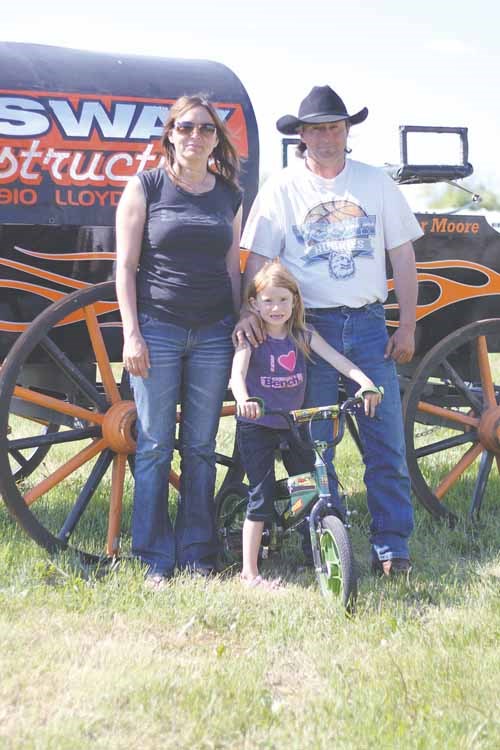Chuckwagon driver Roger Moore lies in the sun by his truck, hands behind his head and hat over his face.
"Go right ahead," comes the voice from beneath the hat. "Ask me anything you need."
It's late Friday afternoon in Yorkton, a few hours before the start of the Canadian Professional Chuckwagon Association Yorkton Dodge Classic. Moore's present posture is the calm before the storm.
"You've got to have your game face on when that horn blows, because there's three, four different outfits hitting the track at the same time and everybody wants to win," he says.
Moore has been racing chuckwagons for more than 30 years-since he was 13 years old-and has been riding horses nearly as long as he's been walking.
In recent years, the 45-year old has been steadily climbing the CPCA standings, placing second overall last year. This season, like every season, he says he's in it to win it all.
Moore comes from Loon Lake, SK, a region that's home to nearly half of the regular CPCA competitors. Just what makes the sport so popular there, the driver can't say for certain.
"Long winters, I guess. We were bored."
He raises his team of horses at home in the summer-a "24-hour job, seven days a week"-and spends the winters as a heavy equipment operator on the oil patch.
"I couldn't handle a boss 12 months of the year. I'd probably be in jail somewhere," he says with only the slightest smile.
Moore's family-his wife Joyce and one or more of their children-travels with him on the racing circuit. Joyce looks after the food and the kids while Moore and his crew take care of the horses. To him, everyone involved is essential.
"It comes all the way back to the barn, it comes all the way back to spring training, it comes all the way back to the family. Everything and everybody has to be on the same page in order to be successful at this."
In Yorkton on the weekend, Moore finished eighth out of 33 drivers: a position he's comfortable being in at this early point in the season. He accelerates his horses' training regimen and modifies their feeding program as the summer goes on so that they peak-in theory-just in time for the Calgary Stampede in July.
Bringing the horses into top shape is an art and a science. "They're the athletes," says Moore. "I'm just along for the ride, basically."
Moore's own mental preparation is another key component.
"I listen to the older fellows, pick up bits and pieces from people from all over. I've probably raced a million races this winter sitting on the CAT. I think about racing 365 days of the year, seeing what I could have done different to improve."
He can't imagine living any other life.
"I would have to say that's just the way God put me together."



